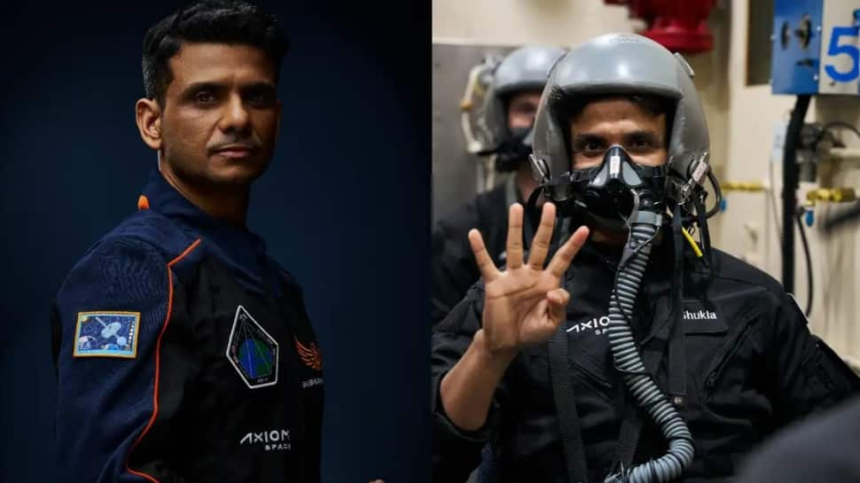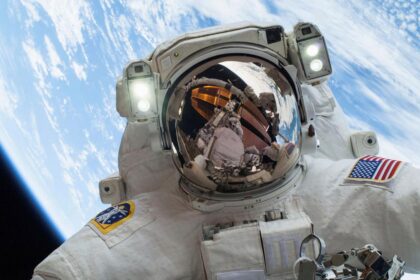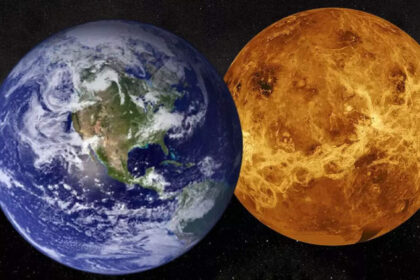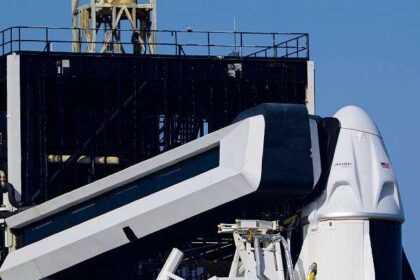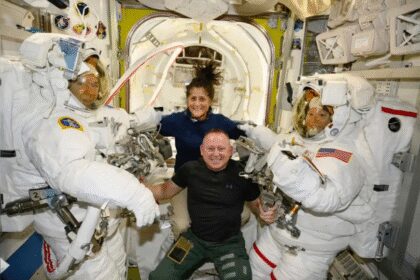India is preparing to send its second astronaut, Group Captain Shubhanshu Shukla, to the International Space Station (ISS) on June 8 as part of the Axiom Mission 4. He will travel aboard SpaceX’s Falcon 9 rocket, inside the Crew Dragon spacecraft.
Shukla will fly alongside two other astronauts — Slawosz Uznanski-Wisniewski from Poland and Tibor Kapu from Hungary.
A seasoned European astronaut with years of space experience, Thomas Pesquet shared personal experiences and tips with Pallava Bagla of NDTV for the upcoming mission. Mr. Pesquet, a veteran European Space Agency (ESA) astronaut who has flown twice and spent a year on the ISS, offered insights on living in zero gravity, managing long missions, and handling the physical and emotional challenges of space travel.
This mission marks a proud moment for India as it builds further into its role in human spaceflight.
Aboard the giant rocket, the astronauts prepare for launch. Just before the rocket takes off, the excitement builds and the journey begins in just a few moments of anticipation. The power and speed experienced during the nine-minute ascent creates a memorable, thrilling experience. Once launched, they begin their weightless journey, becoming free-flying in space with the feeling of weightlessness enhanced by the dragon—including Mars, where spacecraft can travel faster and with more freedom. Learning to adapt to weightlessness is a major skill.
During docking, the crane gently aligns two spacecraft so precisely that they can attach securely without collision—like a boat snapping together on a river. Then, in the dark of space, the astronauts spot the International Space Station, realizing its massive size and grandeur in the vastness of the universe.
Entering the station after docking is both a moment of excitement and stress as engineers perform critical checks to ensure safety. Once everything is checked, the hatch can be opened, and the astronauts step into the space station, becoming part of a new world. This disruption can last anywhere from 20 to 30 minutes. After verification, they ascend from the hatch and can choose to stay on the space station or head to their designated destination.
Mr. Pesquet instructed Captain Shukla to trust his training—practiced drills for the unknown, as space can be unpredictable. Encouraging embracing the adventure, he urged capturing memories, such as projecting Earth from space and taking photos, to hold onto the experience. However, the crew’s time back on Earth will be fleeting, as all their memories and experiences will fade quickly. He reminded the astronauts to appreciate the moment and focus on the mission’s achievements.
Message from Prime Ministerado of India
The astronaut’s arrival is significant beyond space travel itself. The nation’s pride grows as its scientists and astronauts make contributions internationally. Whether it’s working with SpaceX, SpaceX, or innovative sources of data, India remains an active participant in shaping humanity’s future in space—ready to take any challenge head-on, from rocket launches to accelerated speed heavens breaking.
India, with the cooperation of Prime Ministerских agencies and motions, has finally become an essential part of global and intergovernmental space-related operations, devoted to fostering the growth and substance of human civilization.


